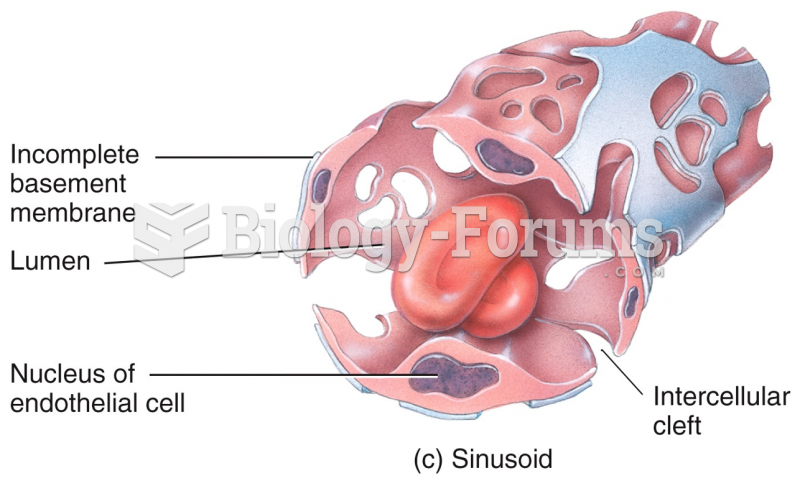Definition for Sinusoid
From Biology Forums Dictionary
A sinusoid is a small blood vessel that is a type of capillary similar to a fenestrated endothelium. Sinusoids are actually classified as a type of Open Pore Capillary (aka discontinuous) as opposed to fenestrated. Fenestrated capillaries have diaphragms that cover the pores whereas Open Pore Capillaries lack a diaphragm and just have an open pore. The open pores endothelial cells greatly increase their permeability. In addition, permeability is increased by large inter-cellular clefts and fewer tight junctions. The level of permeability is such as to allow small and medium-sized proteins such as albumin to readily enter and leave the blood stream.
Sinusoids are found in the liver, lymphoid tissue, endocrine organs, and hematopoietic organs such as the bone marrow and the spleen. Sinusoids found within terminal villi of the placenta are not comparable to these because they possess a continuous endothelium and complete basal lamina.

